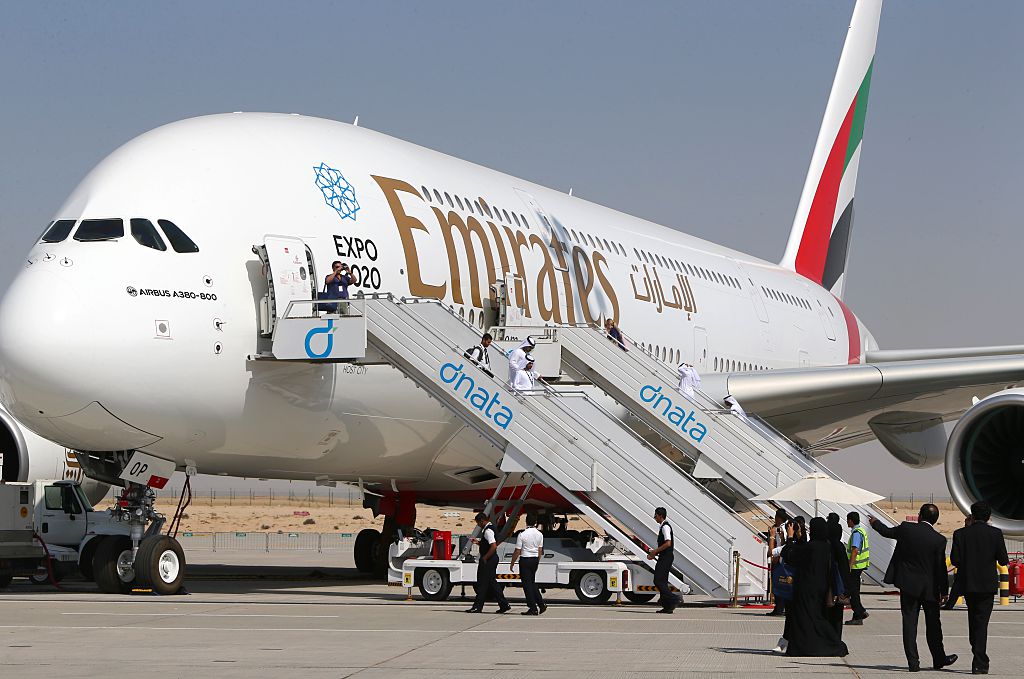U.S. bans most carry-on electronic devices on flights from 8 nations in Middle East, North Africa


A free daily email with the biggest news stories of the day – and the best features from TheWeek.com
You are now subscribed
Your newsletter sign-up was successful
Early Tuesday, the Trump administration announced that passengers on direct flights from 10 airports in eight majority-Muslim countries in the Middle East and North Africa will not be allowed to bring electronic devices larger than a cellphone into the airplane cabin with them. The new rule is effective immediately, and any of the foreign airlines that fail to comply in 96 hours may be barred from flying to the U.S. Trump administration officials said the ban was not linked to any specific or credible terrorist threat and was meant to fill gaps in airport security in the eight countries — Jordan, Egypt, Turkey, Saudi Arabia, Qatar, the United Arab Emirates (Dubai and Abu Dhabi), Kuwait, and Morocco.
The Trump administration said foreign officials were informed of the ban starting Sunday, but it still caused confusion in the targeted nations Tuesday morning. Officials at Cairo's international airport said they have received no instructions from the U.S., and Royal Jordanian airlines says it has not yet started to ban laptops, tablets, and other electronics from the cabin.
Aviation security expert Jeffrey Price pointed out some downsides to the indefinite ban. "There would be a huge disadvantage to having everyone put their electronics in checked baggage," he told The Associated Press, including batteries exploding in the hull and a sharp increase in thefts from baggage, as happened when Britain tried a similar ban in 2006.
The Week
Escape your echo chamber. Get the facts behind the news, plus analysis from multiple perspectives.

Sign up for The Week's Free Newsletters
From our morning news briefing to a weekly Good News Newsletter, get the best of The Week delivered directly to your inbox.
From our morning news briefing to a weekly Good News Newsletter, get the best of The Week delivered directly to your inbox.
A free daily email with the biggest news stories of the day – and the best features from TheWeek.com
Peter has worked as a news and culture writer and editor at The Week since the site's launch in 2008. He covers politics, world affairs, religion and cultural currents. His journalism career began as a copy editor at a financial newswire and has included editorial positions at The New York Times Magazine, Facts on File, and Oregon State University.
-
 Why is the Trump administration talking about ‘Western civilization’?
Why is the Trump administration talking about ‘Western civilization’?Talking Points Rubio says Europe, US bonded by religion and ancestry
-
 Quentin Deranque: a student’s death energizes the French far right
Quentin Deranque: a student’s death energizes the French far rightIN THE SPOTLIGHT Reactions to the violent killing of an ultraconservative activist offer a glimpse at the culture wars roiling France ahead of next year’s elections
-
 Secured vs. unsecured loans: how do they differ and which is better?
Secured vs. unsecured loans: how do they differ and which is better?the explainer They are distinguished by the level of risk and the inclusion of collateral
-
 TikTok secures deal to remain in US
TikTok secures deal to remain in USSpeed Read ByteDance will form a US version of the popular video-sharing platform
-
 Unemployment rate ticks up amid fall job losses
Unemployment rate ticks up amid fall job lossesSpeed Read Data released by the Commerce Department indicates ‘one of the weakest American labor markets in years’
-
 US mints final penny after 232-year run
US mints final penny after 232-year runSpeed Read Production of the one-cent coin has ended
-
 Warner Bros. explores sale amid Paramount bids
Warner Bros. explores sale amid Paramount bidsSpeed Read The media giant, home to HBO and DC Studios, has received interest from multiple buying parties
-
 Gold tops $4K per ounce, signaling financial unease
Gold tops $4K per ounce, signaling financial uneaseSpeed Read Investors are worried about President Donald Trump’s trade war
-
 Electronic Arts to go private in record $55B deal
Electronic Arts to go private in record $55B dealspeed read The video game giant is behind ‘The Sims’ and ‘Madden NFL’
-
 New York court tosses Trump's $500M fraud fine
New York court tosses Trump's $500M fraud fineSpeed Read A divided appeals court threw out a hefty penalty against President Trump for fraudulently inflating his wealth
-
 Trump said to seek government stake in Intel
Trump said to seek government stake in IntelSpeed Read The president and Intel CEO Lip-Bu Tan reportedly discussed the proposal at a recent meeting
